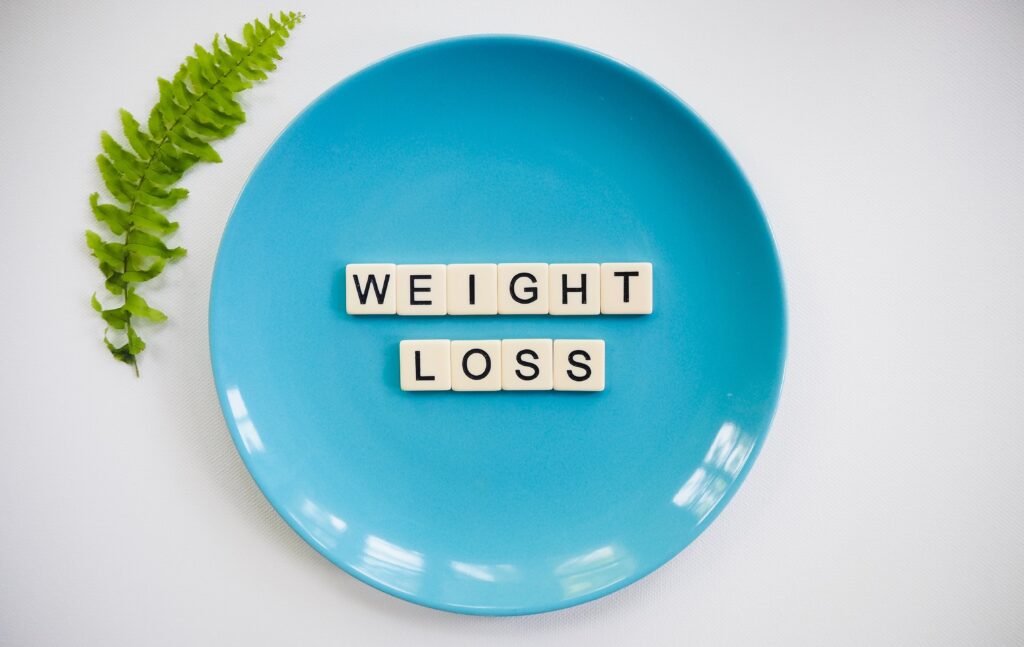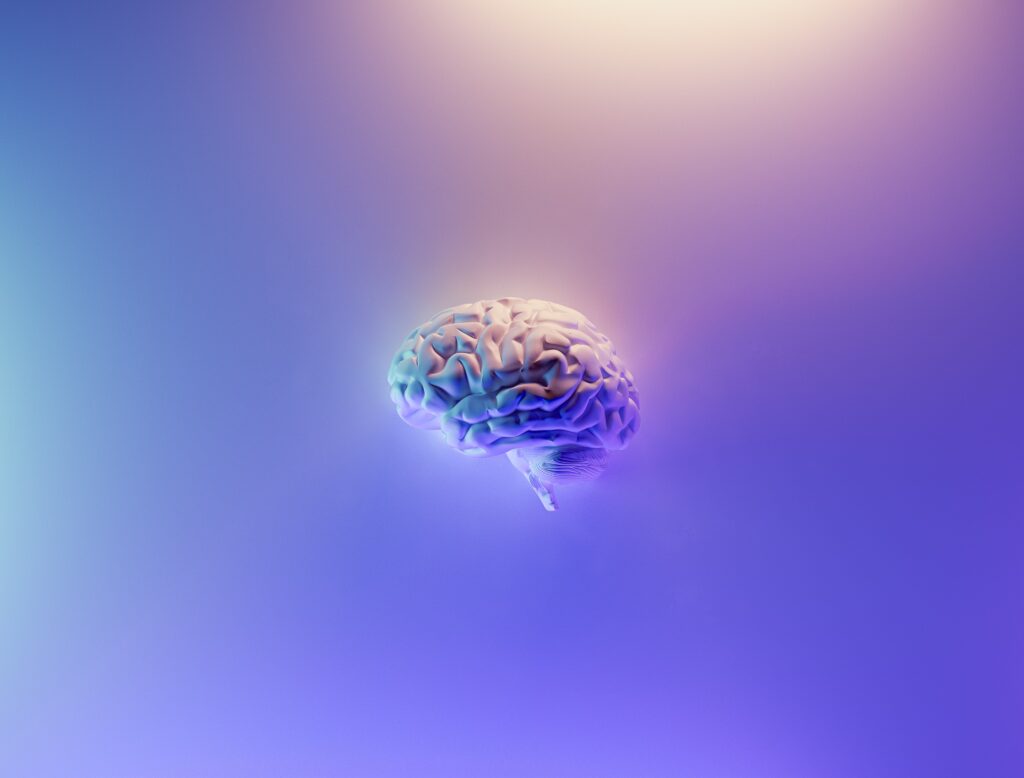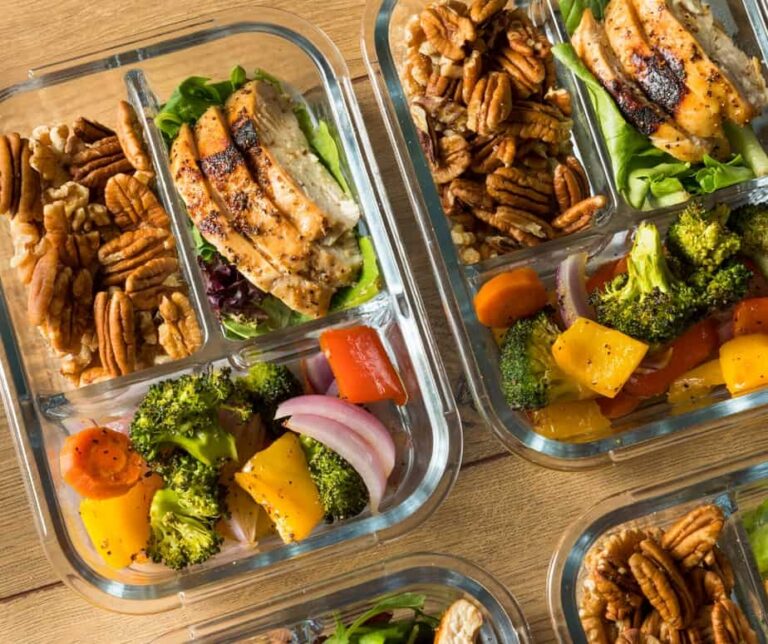WEIGHT LOSS AND ITS COLD HARD TRUTH
At every stage in life, we have tried to lose weight for one reason or the other.

Let's look at why losing weight is so elusive and how to keep it off for good. Some say weight loss is just simple math. Calorie out minus(-) Calorie in will result in weight loss. From personal and anecdotal experiences, we all know our body is far more complex. We want to break down the truth about weight loss so you can start in the direction of least resistance and let your efforts compound.
Einstein says “Compounding is the 8th wonder of the world”. Why don’t we put it to the test?
What Exactly Is Weight Loss?

Weight loss, in all its glory – whether it's for medical, fitness, or health purposes, is a reduction of total body mass. It can either occur unintentionally, that is, due to an underlying disease or malnourishment, or it could be an intentional effort for individual purposes like to reach the right state of body, body health, or physical fitness. Slimming, a deliberate weight loss is a way to reduce caloric intake to promote weight loss, usually to change the perceived appearance.
Weight loss, which is not associated with intentional efforts, and is unexplained, could be because of an understated medical problem and may require a diagnosis.
Types of Weight Loss
1. Intentional Weight Loss
When one willfully invests energy to decrease calorie consumption and practices weight reduction exercises, it is known as deliberate or intentional weight reduction. The reason behind the intentional weight loss is to work on general wellness, body wellbeing or to carry changes to one's actual appearance through Slimming.
Moreover, it could diminish pain, promote recovery in individuals with osteoarthritis of the knee, and decrease hypertension. Weight reduction is achieved by adapting to a lifestyle where the person consumes calories mindfully and burns the extra calories through other forms of exercise.
A couple of variables that exceptionally add to an increase in weight are depression, fatigue, stress, and other psychological ailments, and clinical assistance is typically advised to people in these cases.
The permanent changes in diet and lifestyle make it possible to reduce weight and maintain the newly achieved healthy weight. Without monitoring the lifestyle, an individual may lose all of their efforts to mindless calorie consumption and lethargy. There is legitimate proof that exercising alone doesn't add to weight reduction, that walking or weight training may contribute as much as 20-30%. The rest is diet.
2. Unintentional Weight Loss:
When there are no constant efforts placed into reducing weight, but we still shed some pounds, it is known as Unintentional Weight Loss. Some of its reasons can be loss of body fluids, mass, or malnourishment (when a person isn't getting the proper amount of nutrition that is needed by the body). Clinical assistance is advised to be taken in such cases, as it can result in the deterioration of health at a great amount. Unintentional weight loss can be brought about by various other factors such as decreased appetite related to some medical issues, hormonal changes, dietary changes, changes in digestion, progressing meds, etc.
Excessive and sudden reduction in weight might affect the quality of life, may prompt serious ailments like malnutrition, and impact all parts of the body and lead to higher death rates.
Weight Loss And Its Challenges
Shedding pounds isn't easy at all, as it comes with its own set of difficulties! A couple of them are:

1. Time – Time is undoubtedly one of the challenges that people who are trying to lose weight face. Not being able to take out a few minutes to either make a healthy meal or get in that workout mode because of the “hectic” routine is what is often heard from people who keep on boosting themselves that they will get in on the journey to lose weight but never do, and find such excuses. An indispensable factor to note here is that to have a better quality of life, a person must compromise over some things, whether making schedule cuts or working a little harder on the weekends.
2. Fear of failure – Ah, yes, fear. The most giant anchor of them all, the biggest manipulator, and our biggest enemy. It not only restricts us from doing anything good in life but also stops us from taking risks, as a result, letting new and exciting possibilities pass by. Fear of failure flows in when you are just about to do something about the goals you curate in your head – “What if I am not good enough at it?” or “What if it does not work for me?”, or “What if I fail?”, it's either these or hundreds of related “what ifs.” If you are familiar with the new Marvel series on Disney “What If?” Sometimes I feel like I am on different timelines when it comes to fighting my weight gain.

3. Not knowing where to begin from – Sometimes, it could get a little challenging to find a way even after knowing the destination. This is also one of the greatest hurdles faced by people, not knowing where to start from. Receiving the proper guidance and the push towards the right way is very essential when it comes to body and health because even a step in the wrong way can do wonders in transforming the health of a body in the bad sense.
4. Feasibility – Weight Loss can get a little pricey. Fresh fruits and vegetables, the proper diet, protein bars and powder, gym fee, dietician's fee, anything and everything that adds to a healthy weight loss can be a little costly, and sometimes not everybody is in the position or are privileged enough to be able to afford it. This is also one of the biggest contributors to the challenges faced by people when they consider losing a little body mass.
There are challenges to everything that an individual must want to do in life. It is essential to have the purpose in your mind, asking yourself the right questions, and having the right vision, and being tough enough to laugh in the face of adversity and face those hurdles.
An Individual Body’s Response To Weight Loss
Weight loss is challenging and can come with unpredictable hardships. It is impossible for a person to plan for those hardships.
“Burn more calories than you consume” is sound advice until it is not executed.
The body does not enjoy calorie cutback and will definitely put up a good fight for it, no matter how the body is losing mass.
As a person loses fat or mass, the body may also experience surges in appetite from time to time throughout the day because the fat cells in the body release a hormone called Leptin into the blood circulatory tract, which is in charge of regulating and moderating hunger. As body fat melts away, this hormone will also simultaneously be released to increase appetite and hunger. Hence, a person craves calories to help maintain the body mass, and somewhere lack of calories also slows down the metabolic activities in our body.
Research even claims that the people who are trying to consciously lose weight, their Brain will do whatever is in its power to terminate a person's plan to do it and make them want to have calories.
Losing body mass causes the brain to release stress hormones into the bloodstream and if not managed, we will be forced to rebound. It can also lead to frailty and loss of appetite.
All About Weight Management

Weight Management simply means the whole process that includes a person's capability to attain and retain a particular weight and everything that goes into it – its techniques and physiological methods.
Almost every weight management technique requires a long-term relationship with strategies, dietary curtailment, physical robustness, etc. It also entails knowing what the ideal weight is for different body types and having meaningful and not stressful ways to track weight.
Due to the exceptionally increasing rates of Obesity in many different parts of the world, accurate weight management ways nearly focus particularly on achieving healthy weights through slow but steady weight loss, followed by maintaining a perfect weight over time.
Main components of maintaining weight:
- Diet – The amount of food and beverage consumed by a person plays an awfully vital role in weight management. In addition, the kinds of food and drink someone consumes are vital to weight management. Not solely, it is vital to eat an excellent diet to urge the right quantity of vitamins and nutrients every day to stop health problems. However, it's also vital to remember that bound qualities of foods and drinks (for example, energy density, taste property, sugar content) will profoundly affect weight by regulating hunger.

- Physical Activity – Physical activity is one of the most essential parts of a person’s daily energy expenditure. Physical activity is associated with a person's professional activities, or it might be a part of non-work connected with daily activities, or it is within the kind of exercises. Such physical activity might facilitate someone to take care of a healthy weight and avoid developing noninfectious diseases like polygenic disorder, cardiomyopathy, and dyslipidemia (high cholesterol). Increasing physical activity is especially vital following a diet to forestall catch-up fat in keeping with the physiological construct of the daily cycle.
- Basal Metabolic Rate – BMR is directly proportional to somebody's lean body mass. In other words, the more lean body mass someone has, the higher their metabolism is. Metabolism is additionally weakened by acute diseases and will increase with conditions like burns, fractures, infections, fevers, etc. Metabolism may be measured via direct and indirect calorimetry; but to estimate somebody's metabolic rate we use their age, sex, height, and weight to have a reasonably correct estimation of their metabolism.

- Medications – Certain medications will cause either weight loss or weight gain. The side effects of the drugs are usually listed for every drug and sometimes, one of the side effects is- weight loss. Science has developed abundantly in the past few years, so much so that now we even have weight loss medicines, but these drugs have some sort of ill effects in the body as they might hamper the natural processes of the body. So, it is recommended not to consume such weight loss pills mindlessly.
- Energy Balance – The science behind weight management is advanced; however, one of the key ideas governing weight management is “Energy Balance.” Energy Balance describes the range, the amount, the quantity of calories someone consumes and also the number of calories that the very same person expends or burns during a given period.
A few strategies to maintain a healthy weight!

- Redefining plate size – Using smaller plates helps to consume smaller portions that results in the consumption of fewer calories. Those who are given larger portions don't report back to have a better level of fullness, which tells that hunger and fullness signals are left unnoticed once an oversized portion of food is placed ahead of them. Above all, one study showed that participants consumed 31% fewer calories with the little portion-sized plates as compared to the massive portion size. Redoubled portion sizes have co-occurred with the rise in fat rates; therefore, huge portion sizes of the plate is one of the reasons contributing to the present increase in Obesity within the United States. Proof from a scientific review of seventy-two irregular controlled studies indicated that folks systematically eat a lot of food once offered larger portions or packages instead of smaller size alternatives.
- Eating Low-calorie foods – A moderate reduction in caloric intake will prompt an excessive weight loss, which is frequently more valuable than the quick weight loss. For instance, picking a dark espresso rather than a full-fat latte will save calories that will accumulate over the long haul. Low-fat meats decrease the total amount of calories and cholesterol burned through. For instance, conventional hamburger patties have 19.2% fat and 272 kcal per 100 g of meat. While, lean meat patties have 9.8% fat and 196 kcal.

- Having more protein – The satiety property of dietary protein is impacted when the protein is burned through. Some research has shown that protein intake at breakfast significantly affects satiety than during later supper times. Right off the bat, protein has a more substantial thermogenic impact than starches and fat, which empowers the body to consume more calories. Besides, a high protein breakfast seems to moderate gastric exhaustion, which credits to the way that protein seems, by all accounts, to be the most satisfying macronutrient. At long last, a high protein breakfast builds the action of glucagon, which enacts the pathways for glucose union. One study showed that fat content was roughly twice as much in the high-protein diet bunch than the moderate-protein diet bunch in overweight and corpulent people.
What Our Brain And Gut Have To Add To It
When an individual feels a sensation of “butterflies” in their stomach, these sensations radiating from their belly imply that the mind and gut are connected.

Studies show that your mind influences the well-being of your gut and vice versa. The correspondence framework between your gut and mind is known as the gut-mind axis.
Neurons are cells found in the brain and focal sensory system that advise the body on how to act. There are nearly 100 billion neurons in the human mind, and your gut contains 500 million neurons, which are associated with your mind through nerves in your sensory system.
The vagus nerve is probably the greatest nerve connecting your gut and brain. It transmits signals in two ways.

There is a significant number of different sorts of microscopic organisms in your digestive tracts, the greater part of which aid your wellbeing. On the contrary, our body also has a large number of organisms that can prompt illness.
A mixture of advantageous and non-advantageous organisms is sometimes known as gut dysbiosis, and they might be a cause of weight gain. Even a few studies and researches claim that microbiome dysbiosis may become a part of weight gain.

Research headed by a group at Baylor College of Medicine has recognized a formerly obscure gut-mind association that assists with clarifying why eating a high-fat regimen (HFD) prompts weight gain and corpulence. Scientific investigations have shown that mice tested for HFD produced an enormous amount of a chemical known as GIP, which is associated with energy balance. The raised degrees of GIP created in the Gut repress motioning by the chemical Leptin in the cerebrum, successfully exchanging hunger signals, so the creatures proceed to eat and put on weight. Terminating GIP receptors in the cerebrum then, at that point, reestablishes leptin reactions in HFD in the hefty mice, and the creatures begin to eat less and shed pounds. This is probably why an individual cannot keep the extra weight off when they are trying to, and it is because the Gut is sending all mixed signals to the Brain.
Excess Weight And How To Beat It?

To lose that extra weight, and to keep it off, it is vital to make your Brain comfortable, so it relaxes and comforts the whole body – including the Gut! After all, losing weight is sort of a constant battle between the mind and body. This is achievable by not hovering over calorie counts and just going with the flow of having a low-calorie diet, eating simple food. This will also cause the Brain to not stress out because of the body's distress but will help it to keep up with the new changes, and in turn, will help with a more relaxed and healthier weight loss.
The 3 ways to do it:
- Avoid refined carbs – One way to get in shape quickly is to scale back sugars, starches, or carbs. This could be with a low-carb consumption plan or reducing refined carbs and superseding them with whole grains. At that stage, when you do that, your yearning levels go down, and you start to eat fewer calories. With a low-carb eating plan, you'll use the stored fat for energy in place of carbs. On the off chance that you decide to consume more complex carbs like whole grains alongside a calorie shortfall, you will gain fiber that once again increases thermogenesis and your metabolic rate.
A recent survey confirmed that an extremely low-sugar diet is helpful for getting in shape. The survey likewise recommends that a low-carb diet can diminish craving, which might prompt eating fewer calories without mulling over everything or feeling hungry. Keep in mind that the drawn-out impacts of a low-carb intake are as yet being explored. It can likewise be challenging to hold fast to a low-carb diet, which might fluctuate the calorie count and more minor accomplishments to maintain a solid weight. There are practical disadvantages to a low-carb diet that might lead you to an alternate strategy. Light calorie diets can likewise prompt weight reduction and are simpler to keep up with for longer time frames.

- Eat a lot of protein – Eating a prescribed measure of protein is crucial for safeguarding your wellbeing and bulk while getting thinner. Evidence suggests that eating sufficient protein might improve cardiometabolic hazard variables, craving, and body weight. Watch your protein intake as you get older as it can affect your kidney function resulting in poor KFT/kidney function test results.
- Don’t keep sitting around – Get moving and keep moving. In case you're a beginner at working out, ask an instructor for some instructions. Ensure your primary care physician (PCP) is informed especially if you have any injuries or prior medical conditions. On the off chance that lifting weight doesn’t work for you, doing some cardio exercises like strolling, running, cycling, or swimming these exercises are exceptional for weight reduction and general wellbeing. Both cardio and weightlifting can help with weight reduction.
You'll probably encounter extreme cravings and appetite changes by decreasing carbs or swapping refined carbs with complex carbs. This is the fundamental reason why it is usually hard to keep a weight-reduction plan. With a diligent low-carb or lower-calorie eating plan, you can eat good food until you're full and still lose a lot of weight.
The “Weight Talk” And Its Communication

Gaining excess weight is increasingly stigmatized and this can have a profound impact on our personal relationships including marriage. It is important to use the right words, even the right tone is crucial to not make the other person feel less.
When discussing weight with friends, family, or even your colleagues, try to be sensitive to their personal struggles. Food is and will always be a point of comfort. A person with excess weight may also indirectly signal that they have been through a lot of emotional stress, possibly abuse in life that they are forced to turn to food for comfort. This is not always the case since it can also be seen as a source of finding easy solutions to complex problems. Whatever the reasons, it is important to be sensitive to one’s challenges.

Here are four steps to direct discussions about weight and wellbeing with their loved ones:
- Work collectively!
- Recognize the effort and use this experience to connect with your loved one.
- Use positive language. Building confidence, feeling of worth and positive self-talk will spur change. Weight shaming will only affect someone's self-esteem. They will suffer from body-shaming or in extreme cases, can lead to depression. So, weight disgracing should never be an option, and we must always motivate others to get in the desired shape they wish for.
- Positive reinforcement is better than negative reinforcement.
If we can remove the mental barriers, the cold hard truth won't remain cold anymore.
Takeaway
The conversation around weight loss may remain stigmatized for a long time. The cold hard truth is that weight loss is hard and it takes a mental toll on our loved ones.
It is essential to keep our ears and minds open for anybody and everybody who may experience mental pressure because as a society, it is our responsibility to provide a healthy and safe environment for anyone who wishes to open up about their struggles. It is crucial, especially today, to change people's mindsets about weight loss and recognize that there is no “ideal” body type and learn to celebrate each other.








